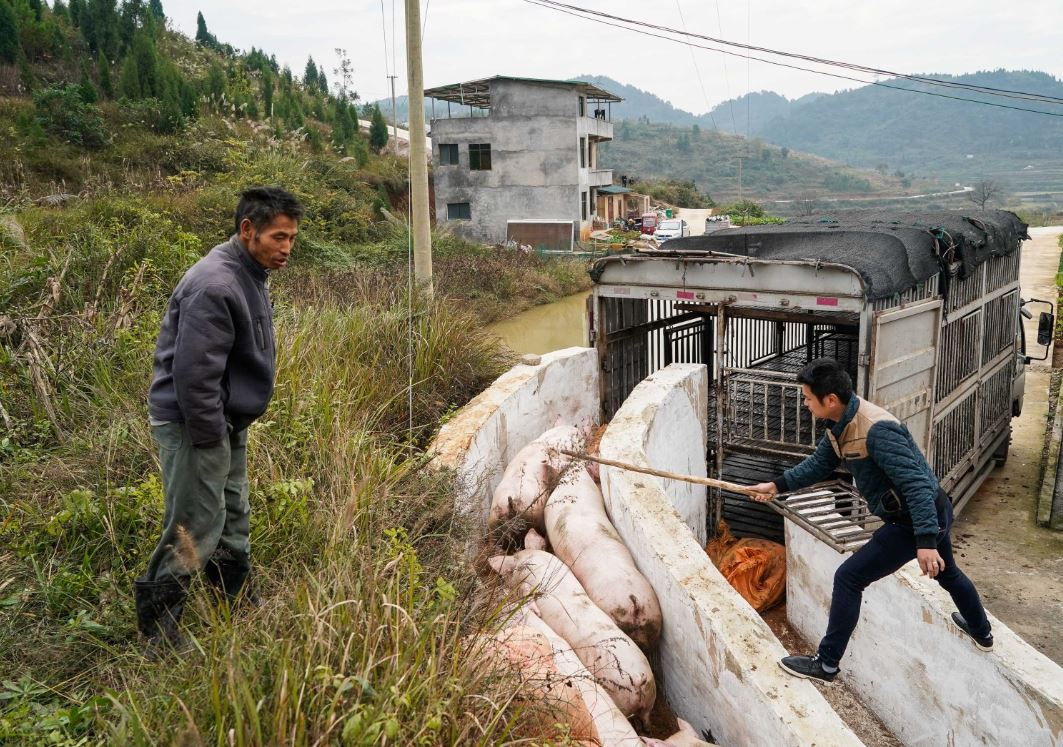Swine fever reshaping pig farming
By Wu Yong in Shenyang | China Daily | Updated: 2019-05-28 09:29

Number of SMEs continues to drop due to surge in the output of large companies over the last decade
China's pig farming industry is undergoing a second crisis in a decade, this time caused by African swine fever. The potential pork shortage is changing the layout of China's pig industry and dining tables all over the world.
More than one million sick pigs had been slaughtered across the country by the end of April since ASF was first reported in August in Shenbei New District of Shenyang, capital of Liaoning province.
Liaoning is home to more than 40 million pigs and is mainly responsible for supplying pork to Beijing, Tianjin and other big cities in North China.
"China is the largest producer and consumer of pork in the world. In 2019, ASF will result in a reduction in pig stocks of 20 percent, or 130 million pigs. This will have significant impact on the global meat and animal feed market," said the latest issue of Food Outlook released by the Food and Agriculture Organization of the United Nations on May 9.
Food accounts for nearly one-third of China's consumer price index. Every three out of 100 yuan ($14.5) in consumption goes into pork.
The decisive impact of pork prices on inflation is also known as the China Pig Index, which has played a big role in pushing up China's CPI and the world pork market in the past decade.
"The declining rate and speed of pork supply are both the greatest in the past 10 years. Both factors may result in the decline of pork production and boost pork prices," said Wang Junxun, deputy director-general of the animal husbandry and veterinary bureau of the Ministry of Agriculture and Rural Affairs, at a news conference late last month.
The CPI in China reached 2.5 percent in April, an increase of 0.2 percentage point over the previous month, touching a six-month high, according to the National Bureau of Statistics. Some experts worry that the rising CPI may affect the central bank's policy of monetary easing.
Due to surging demand in the Chinese market, the lean hog index of the Chicago Mercantile Exchange jumped from last August's 44 points to 80 points this spring.
Experts expect China's demand will keep driving up pork imports and benefit pork producers in the United States, Canada, Denmark and the Netherlands.
"The rising price is just the first shock wave. ASF could change the industry and the dining table of each Chinese family," said Jin Weidong, chairman of Wellhope Agri-Tech Joint Stock Co Ltd, a leading feed producer in Northeast China.
Nearly half of Chinese pig farms are small and medium-sized enterprises, which are vulnerable to ASF and food safety emergencies.
Most pig farms infected with ASF in China are SMEs with fewer than 500 pigs. The only thing they can do is sell off pigs as soon as possible to avoid risks.
"The SMEs can neither meet the market demand, nor invest in scientific research and high-quality farm buildings. Once an epidemic occurs, the pig market in China will fluctuate violently," explained Qiu Jiahui, vice-president of Wellhope responsible for the pig and broiler sectors.
























